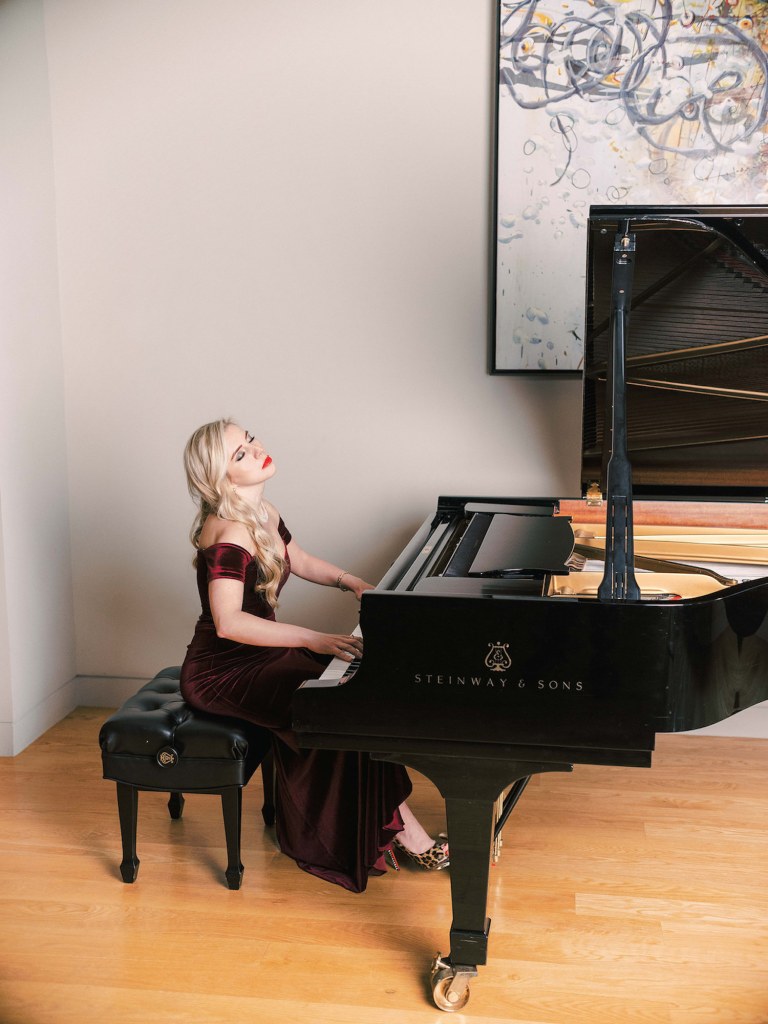Reaching Rach Three
Published 6:00 am Wednesday, February 14, 2024

- Natasha Paremski is scheduled to perform Rachmaninoff’s Piano Concerto No. 3 in D Minor Saturday, Feb. 17, at the VSU Fine Arts Building.
VALDOSTA – In the movie “Shine,” David Helfgott wins a piano competition playing Sergei Rachmaninoff’s Piano Concerto No. 3, then collapses on stage from a mental breakdown.
In an earlier scene, when Helfgott expressed his desire to perform Rachmaninoff’s Third Concerto, Dr. Cecil Parkes says, “The Rach Three. It’s monumental.”
Helfgott: “It’s a mountain. The hardest piece you could ever play.”
Parkes: “No one’s ever been mad enough to attempt the Rach Three.”
Helfgott: “Am I mad enough, professor? Am I?”
This weekend, renowned pianist Natasha Paremski plays the Rach Three with the Valdosta Symphony Orchestra.
Howard Hsu, Valdosta Symphony music director and conductor, said, “The Third is considered one of the most difficult and demanding piano concertos.”
The Rach Three “is not easy, demanding fleet-fingered agility as well as raw power,” notes Ted Libbey in his book, “The NPR Guide to Building a Classical CD Collection.” “The non-stop activity means that a player must have tremendous endurance just to achieve an even draw with the orchestra.”
Paremski agrees.
However, in a phone interview from New York City with The Valdosta Daily Times, she speaks of the Rach Three as a dragon that can be tamed through preparation.
She mentions the 1996 biopic “Shine” starring Geoffrey Rush as Helfgott and John Gielgud as Parkes.
She said the Rach Three is “considered to be the most difficult piano piece ever composed. … The movie kind of put the concerto on the map.”
Paremski said she first saw the movie when she was about 10. As a pianist born in Russia, she said there’s an expectation to know all of the Russian-born Rachmaninoff concertos.
But the Rach Three “eluded me until I was about 25,” she said, “adding I don’t shrink from a challenge. That’s what makes it all the more exciting.”
The concerto has been a regular part of her repertoire for the past 12 years.
“Most often, I feel rejuvenated,” she said of playing the concerto. “A lot of adrenaline goes into performing it.”
She said she must prepare and be prepared to perform it. In cases, like the Valdosta Symphony concert, Paremski knows she will be performing the Rach Three months in advance. In other cases, she’s been called to perform the concerto a mere couple of days prior to a concert.
In Russia, Paremski started playing piano as a 3 year old. Her parents noticed her “drive for the piano very early,” she said.
But a few years later when her family immigrated to the United States, money was tight, a piano and lessons were expensive. She did not play piano for about the first year.
No one in the family spoke English. Her parents had a “smattering of forgotten English” from their school days. Moving from Moscow to San Francisco, young Natasha faced a new country, a new language, new ways, a new school.
“There was some bullying,” she said. “You meet people who don’t like you because you are an immigrant.”
Eight years old. A new world. No piano.
She attended a piano concert.
“I remember just sitting there, crying, missing the piano,” she said.
At 9 years old, she knew piano would be her life. Her parents ensured she had a piano and lessons.
“The piano made me happy,” she said.
Six years later, Paremski made her piano debut.
She won several national and international piano prizes at a young age, “including the Gilmore Young Artists Prize in 2006 at the age of 18, the Prix Montblanc in 2007, the Orpheum Stiftung Prize in Switzerland,” according to her website biography. “In September 2010, she was awarded the Classical Recording Foundation’s Young Artist of the Year. Her first recital album was released in 2011 to great acclaim, topping the Billboard Classical Charts, and was rereleased on the Steinway & Sons label in September 2016 … In 2012, she recorded Tchaikovsky’s Piano Concerto No. 1 and Rachmaninoff’s ‘Paganini Rhapsody’ with Royal Philharmonic Orchestra and Fabien Gabel on the orchestra’s label.”
She has made other recordings, performed works composed for her, performed nationally and internationally.
As she said, the piano makes her happy, she loves a challenge.
Howard Reich of The Chicago Tribune noted of one of her performances, “Paremski outdid herself, tossing off diabolically complex passages as if they were child’s play.”
She plans to do so again with the Rach Three and the Valdosta Symphony Orchestra.
Valdosta Symphony Orchestra presents “Turbulent,” featuring Schumann’s “Manfred” Overture, Hindemith’s “Nobilissima visione” Suite and Rachmaninoff’s Piano Concerto No. 3 in D Minor with Natasha Paremski on piano, 7:30 p.m. Saturday, Feb. 17, Whitehead Auditorium, Valdosta State University Fine Arts Building, corner of Oak and Brookwood. Pre-concert chat at 6:45 p.m. More information, tickets: Visit valdostasymphony.org or call (229) 333-2150.




